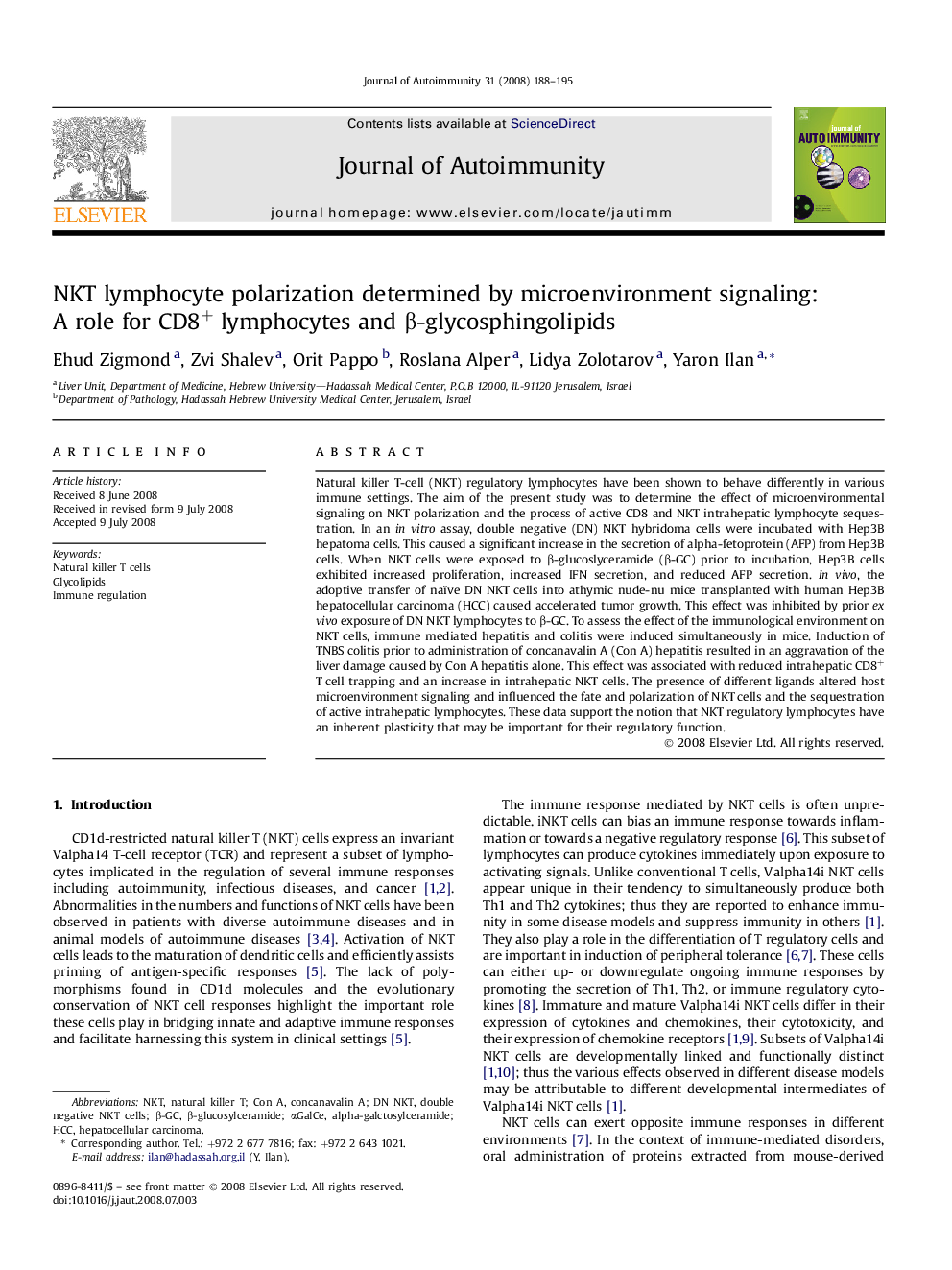| Article ID | Journal | Published Year | Pages | File Type |
|---|---|---|---|---|
| 3368279 | Journal of Autoimmunity | 2008 | 8 Pages |
Natural killer T-cell (NKT) regulatory lymphocytes have been shown to behave differently in various immune settings. The aim of the present study was to determine the effect of microenvironmental signaling on NKT polarization and the process of active CD8 and NKT intrahepatic lymphocyte sequestration. In an in vitro assay, double negative (DN) NKT hybridoma cells were incubated with Hep3B hepatoma cells. This caused a significant increase in the secretion of alpha-fetoprotein (AFP) from Hep3B cells. When NKT cells were exposed to β-glucoslyceramide (β-GC) prior to incubation, Hep3B cells exhibited increased proliferation, increased IFN secretion, and reduced AFP secretion. In vivo, the adoptive transfer of naïve DN NKT cells into athymic nude-nu mice transplanted with human Hep3B hepatocellular carcinoma (HCC) caused accelerated tumor growth. This effect was inhibited by prior ex vivo exposure of DN NKT lymphocytes to β-GC. To assess the effect of the immunological environment on NKT cells, immune mediated hepatitis and colitis were induced simultaneously in mice. Induction of TNBS colitis prior to administration of concanavalin A (Con A) hepatitis resulted in an aggravation of the liver damage caused by Con A hepatitis alone. This effect was associated with reduced intrahepatic CD8+ T cell trapping and an increase in intrahepatic NKT cells. The presence of different ligands altered host microenvironment signaling and influenced the fate and polarization of NKT cells and the sequestration of active intrahepatic lymphocytes. These data support the notion that NKT regulatory lymphocytes have an inherent plasticity that may be important for their regulatory function.
